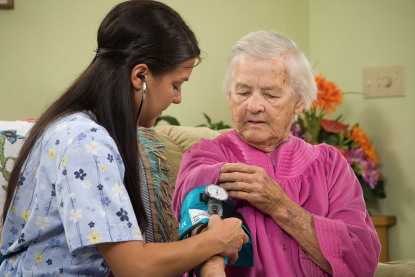 As children, we rely on our parents for care. As we age and become more independent, we often find ourselves involved in the care of our aging parents and this care is often in the parents’ own home. And while family caregivers play an increasingly important role in providing the care required for older adults live in their homes longer, the work is typically buffeted and supported with the aid of personal and home care assistants.
As children, we rely on our parents for care. As we age and become more independent, we often find ourselves involved in the care of our aging parents and this care is often in the parents’ own home. And while family caregivers play an increasingly important role in providing the care required for older adults live in their homes longer, the work is typically buffeted and supported with the aid of personal and home care assistants.
Adults with cognitive and/or physical challenges often need help with dressing, taking medications, preparing meals, and getting around the house and to the bathroom. Personal and home care assistants (PHCAs) are employed to do this work and, as such, they become a trusted companion and resource for their client. The work they do is vital to the dignity of each client’s quality of life.
Despite the important role of PHCAs, workers are commonly undercompensated and often work with few, if any, medical or retirement benefits. However, organizations such as the LeadingAge Center for Applied Research are working hard to scaffold the level of training these workers receive, increase their compensation, and to raise the profile of PHCAs to the point that they are seen as a critical component in the care and treatment of an increasingly large population of seniors in America.
In addition to the work of organizations such as LeadingAge, persons that employ PHCAs need to inquire about each worker’s level of training and to ensure workers have the level of competency required by their clients. Additionally, be sure to pay competent workers a fair and living wage. This ensures that quality eldercare workers can afford to continue their important work.
Home care is a growing business. As it evolves, it needs to be filled with trained and well-rewarded personal and home care assistants. All of us benefit when the ones we love are taken care in a professional and caring manner.
Source: Huffington Post

